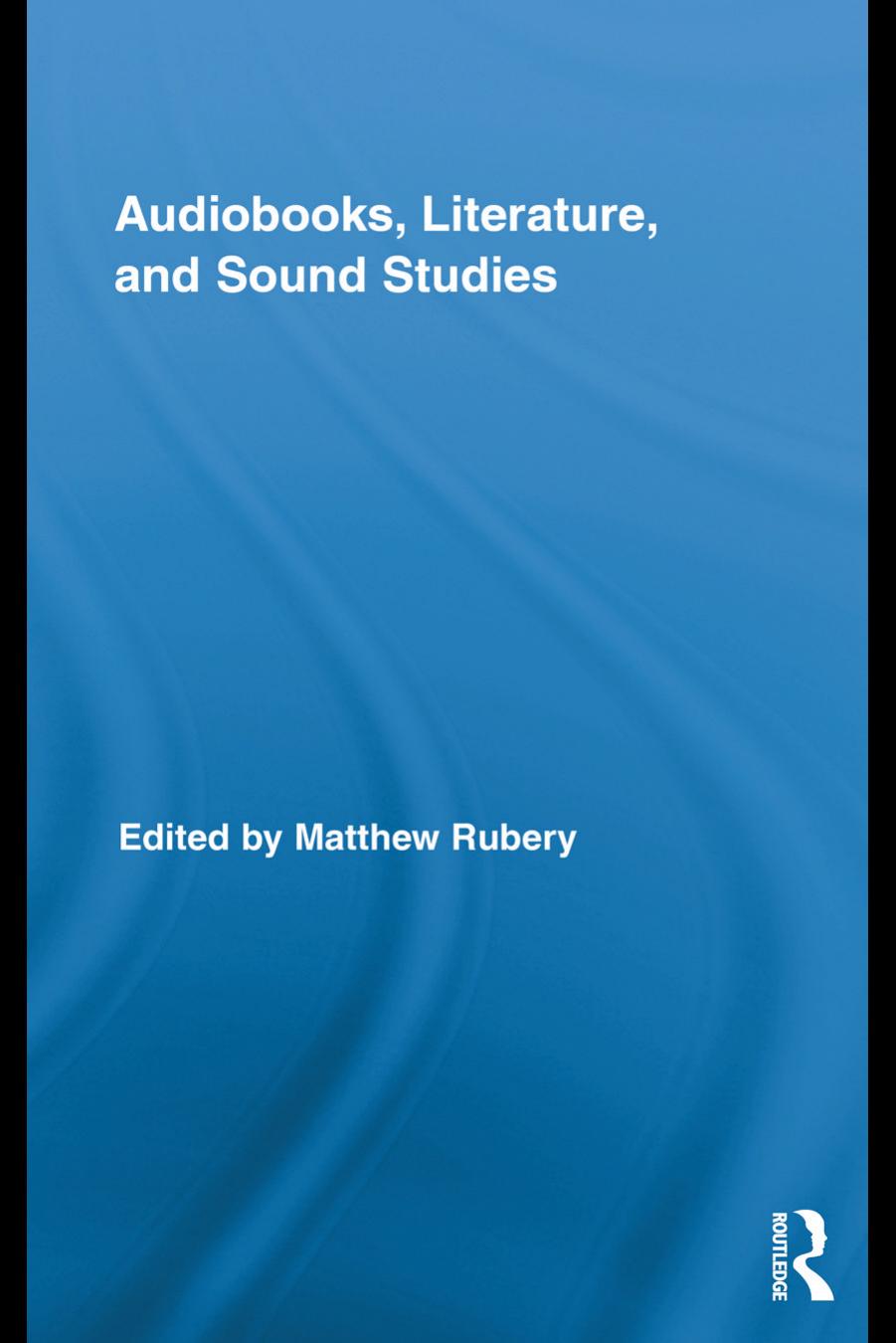Audiobooks, Literature, and Sound Studies by Matthew Rubery

Author:Matthew Rubery
Language: eng
Format: epub, pdf
ISBN: 9781136733321
Publisher: Taylor and Francis
Published: 2022-06-15T00:00:00+00:00
Notes
Charles Dickens, Hard Times (Oxford: Oxford University Press, 1955), 5.
Charles Dickens, Hard Times, read by Frederick Davidson (Ashland, Ore.: Blackstone Audiobooks, 1993; Prince Frederick, Md.: Audio Adventures and Landmark Audiobooks, 2007). Davidson has also been a frequent audiobook narrator of le Carréâs novels.
Charles Dickens, Our Mutual Friend, ed. Michael Cotsell (New York: Oxford University Press, 1989), I.198.
Bernhard Schlink, The Reader, trans. Elizabeth Brown Janeway (New York: Random House, 1997), 184.
Peter Kivy, The Performance of Reading: An Essay in the Philosophy of Literature (Oxford: Blackwell, 2006).
The argument is most fully laid out in Friedrich A. Kittler, Gramophone, Film, Typewriter, trans. Geoffrey Winthrop-Young and Michael Wutz (Stanford, Calif.: Stanford University Press, 1999).
See âFrom the Author,â http://www.johnlecarre.com/biography.html, where the comparison with espionage is rounded out as follows: âArtists, in my experience, have very little centre. They fake. They are not the real thing. They are spies. I am no exception.â
These crucial terms are in adjacent paragraphs of John le Carré, The Mission Song (New York: Little, Brown, 2008), 52. Hereafter cited parenthetically by page number.
John le Carré, Tinker, Tailor, Soldier, Spy (New York: Knopf, 1974), 265.
le Carré, Tinker, Tailor, Soldier, Spy, 265.
John le Carré, Tinker, Tailor, Soldier, Spy, read by Frank Muller (Prince Frederick, Md.: Recorded Books, 1988).
John le Carré, A Perfect Spy (New York: Scribner, 1986), 399.
13 The Stoker novel is first discussed by Kittler in Discourse Networks, 1800/1900, trans. Michael Metter with Chris Cullens (Stanford, Calif.: Stanford University Press, 1990), 353â356, after which this one key scene of psychomagnetic telepathy is returned to in Kittler, Gramophone, Film, Typewriter, 103, with preliminary remarks on Sewardâs dictaphone recording, 87.
Edward Bellamy, âWith the Eyes Shut,â in Apparitions of Things to Come: Tales of Mystery and Imagination (Chicago: Charles H. Kerr, 1990), 153â 171. Hereafter cited parenthetically by page number.
See Kittler, âLearning to Read in 1800,â in Discourse Networks, 1800/1900, 27â52, in a chapter called âThe Motherâs Mouth.â
See the main discussion of tape technology in Kittler, Gramophone, Film, Typewriter, 105â114.
John le Carré, The Looking-Glass War (New York: Scribner, 2009), 154. Hereafter cited parenthetically by page number.
Kittler, Gramophone, Film, Typewriter, 107.
The Looking-Glass War, read by Frank Muller (Prince Frederick, Md.: Recorded Books, 1988).
le Carré, A Perfect Spy, 155. Hereafter cited parenthetically by page number.
John le Carré, A Perfect Spy, read by John le Carré, abridged by Sue Dawson (Ontario, Canada: Listen for Pleasure, 1986). The unabridged version is A Perfect Spy, read by Frank Muller (Prince Frederick, Md.: Recorded Books, 1987).
John le Carré, A Most Wanted Man (New York: Scribner, 2008), 265.
John le Carré, The Mission Song, read by David Oyelowo (Westminster, Md.: Books on Tape, 2006).
John le Carré, The Russia House (London: Hodder and Stoughton, 1989), 439. Hereafter cited parenthetically by page number.
Download
Audiobooks, Literature, and Sound Studies by Matthew Rubery.pdf
This site does not store any files on its server. We only index and link to content provided by other sites. Please contact the content providers to delete copyright contents if any and email us, we'll remove relevant links or contents immediately.
4 3 2 1: A Novel by Paul Auster(12370)
The handmaid's tale by Margaret Atwood(7754)
Giovanni's Room by James Baldwin(7320)
Asking the Right Questions: A Guide to Critical Thinking by M. Neil Browne & Stuart M. Keeley(5757)
Big Magic: Creative Living Beyond Fear by Elizabeth Gilbert(5753)
Ego Is the Enemy by Ryan Holiday(5412)
The Body: A Guide for Occupants by Bill Bryson(5079)
On Writing A Memoir of the Craft by Stephen King(4927)
Ken Follett - World without end by Ken Follett(4720)
Adulting by Kelly Williams Brown(4564)
Bluets by Maggie Nelson(4546)
Eat That Frog! by Brian Tracy(4522)
Guilty Pleasures by Laurell K Hamilton(4439)
The Poetry of Pablo Neruda by Pablo Neruda(4093)
Alive: The Story of the Andes Survivors by Piers Paul Read(4017)
White Noise - A Novel by Don DeLillo(4001)
Fingerprints of the Gods by Graham Hancock(3991)
The Book of Joy by Dalai Lama(3972)
The Bookshop by Penelope Fitzgerald(3843)
